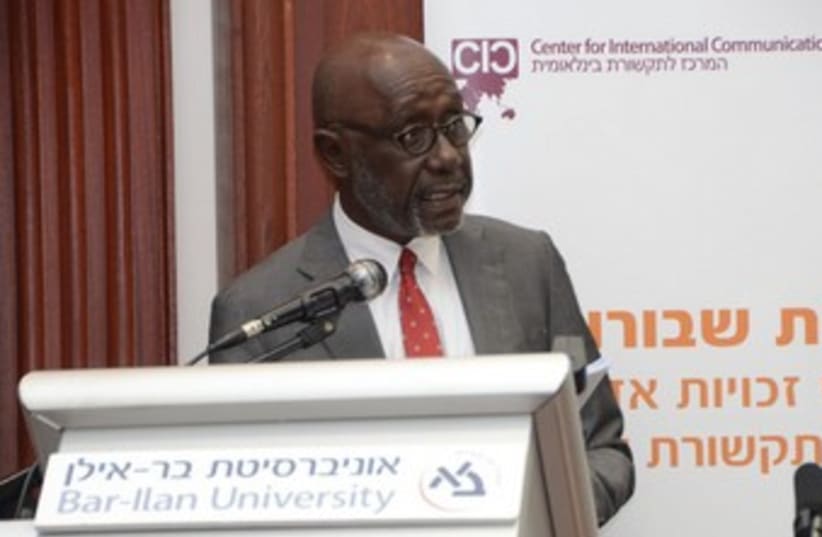The trend for media to cover reports from human rights law organizations and officials as if they are objective and have no agenda is problematic, according to NGO monitoring organizations and Foreign Ministry officials.The accusations came out of Bar-Ilan University’s conference in Ramat Gan Wednesday on human rights organizations, the media and Israel.While praising the honest dialogue and appraisals on both sides of the debate at the conference itself, NGO Monitor president Gerald Steinberg said the trend is so problematic that NGOs should have an ethical code of conduct, as the media do.The code of conduct should include an enforcement mechanism or ombudsman that would combine independent observers with volunteers from the NGOs themselves to hold them to a greater standard of objectivity, Steinberg said.Why is this necessary? According to Steinberg, most NGOs that cover Israel have been “taken over by an ideological agenda.”Despite this, he said the media do not check the veracity of and often overly dramatize the findings of NGOs regarding human rights law.For example, Steinberg said the UN’s 2009 Goldstone Report on Operation Cast Lead in the Gaza Strip was essentially an amalgamation of reports from around 50 human rights law organizations, accepting the organizations’ findings as objective both regarding factual and legal issues.While Steinberg views media coverage of these organizations as not critical enough, he points out that at least with the media there is a journalists association where one can file complaints.In fact, Steinberg said NGO Monitor has filed such complaints and they have been adjudicated.Daniel Meron, head of the UN and International Organizations Bureau in the Foreign Ministry who also spoke at the conference, concurred, focusing on noncritical reporting of UN human rights law officials.He noted a recent press conference given by the UN’s special rapporteur on human rights in the Palestinian territories, Richard Falk, in which the media reported on his statement, but did not “expose” Falk’s “hypocrisy” and “background.”As for that background, Meron said that Falk has shattered any veil of neutrality by openly supporting anti-Israel divestment campaigns, has associated Israel with Nazism, and has associated Israel’s government with state-sponsored terrorism.On a separate note, Meron said he found it highly problematic that the media give so much attention to UN officials’ criticism of Israel, whereas Israel’s UN Ambassador Ron Prosor submits a complaint after each rocket is fired into Israel, events that are generally ignored if they are not part of a larger escalation.Meron called on the media, NGOs and the UN to “tell the truth,” saying that Israel gets “much more scrutiny than the rest of the world.”Thus, Steinberg and Meron argue that there are problematic trends in the lack of critical coverage of NGOs, and more specifically, Steinberg’s proposes an ombudsman who could hold NGOs accountable for factual and legal errors, since they are viewed as such a source of objectivity.
